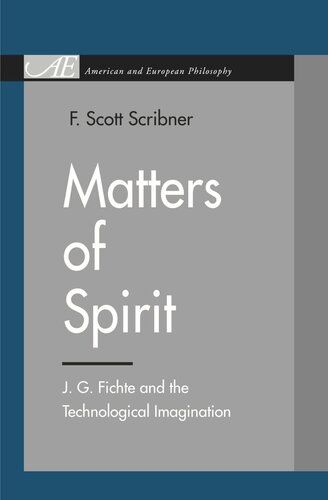

Most ebook files are in PDF format, so you can easily read them using various software such as Foxit Reader or directly on the Google Chrome browser.
Some ebook files are released by publishers in other formats such as .awz, .mobi, .epub, .fb2, etc. You may need to install specific software to read these formats on mobile/PC, such as Calibre.
Please read the tutorial at this link: https://ebookbell.com/faq
We offer FREE conversion to the popular formats you request; however, this may take some time. Therefore, right after payment, please email us, and we will try to provide the service as quickly as possible.
For some exceptional file formats or broken links (if any), please refrain from opening any disputes. Instead, email us first, and we will try to assist within a maximum of 6 hours.
EbookBell Team

5.0
50 reviewsThis book offers a radically new interpretation of the entire philosophy of J. G. Fichte by showing the impact of nineteenth-century psychological techniques and technologies on the formation of his theory of the imagination—the very centerpiece of his philosophical system. By situating Fichte’s philosophy within the context of nineteenth-century German science and culture, the book establishes a new genealogy, one that shows the extent to which German idealism’s transcendental account of the social remains dependent upon the scientific origins of psychoanalysis in the material techniques of Mesmerism. The book makes it clear that the rational, transcendental account of spirit, imagination, and the social has its source in the psychological phenomena of affective rapport. Specifically, the imagination undergoes a double displacement in which it is ultimately subject to external influence, the influence of a material technique, or, in short, a technology.